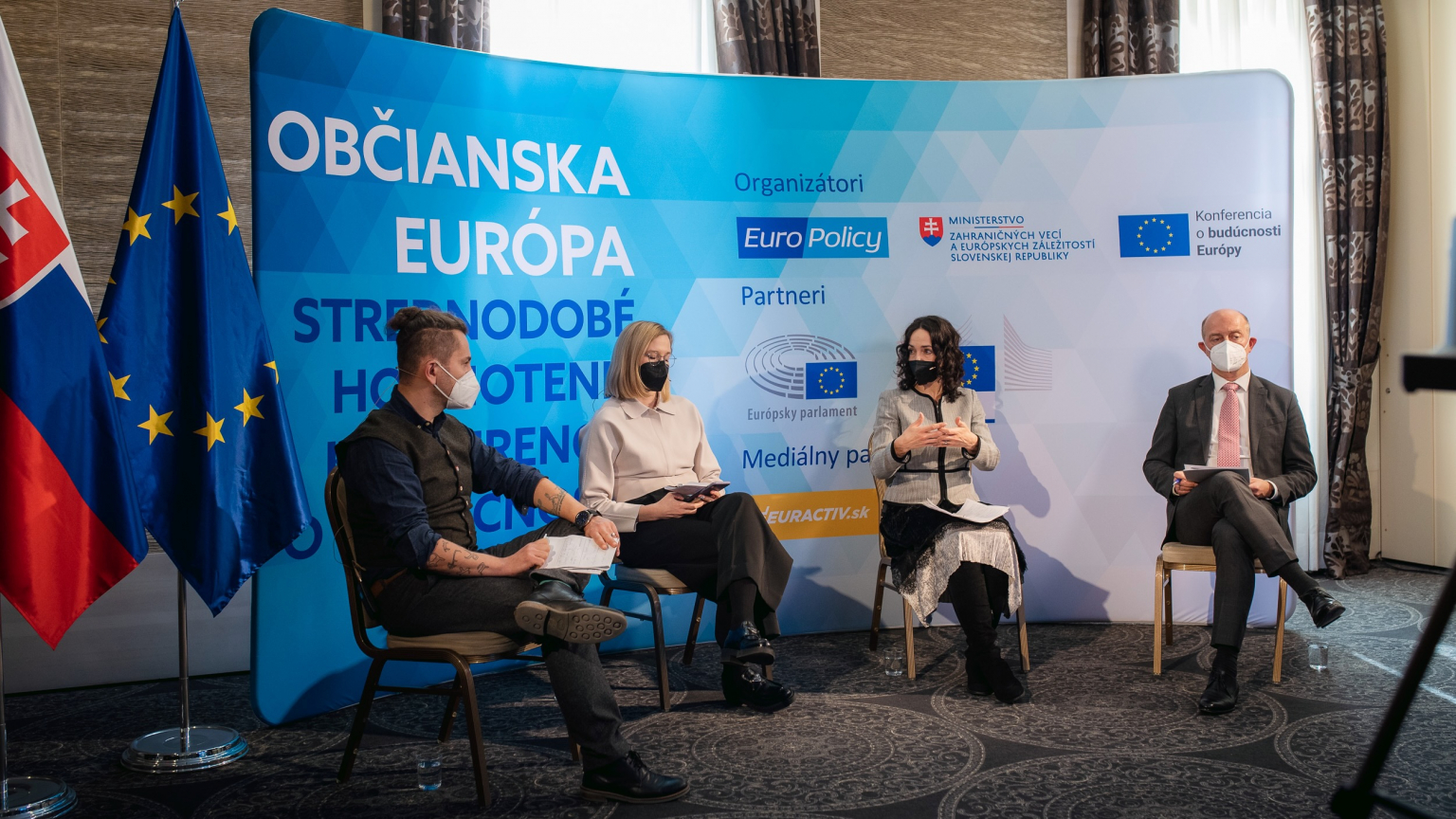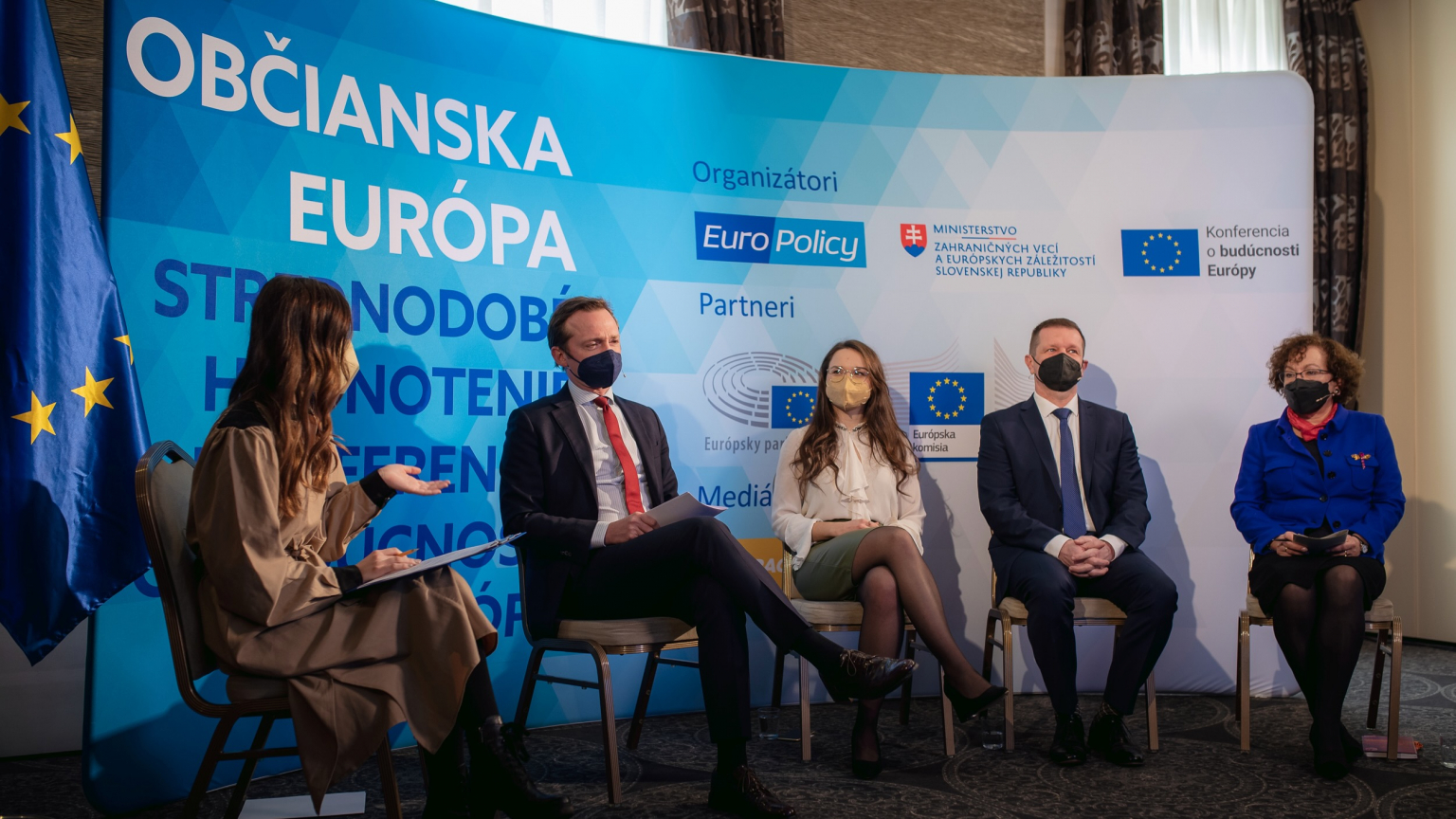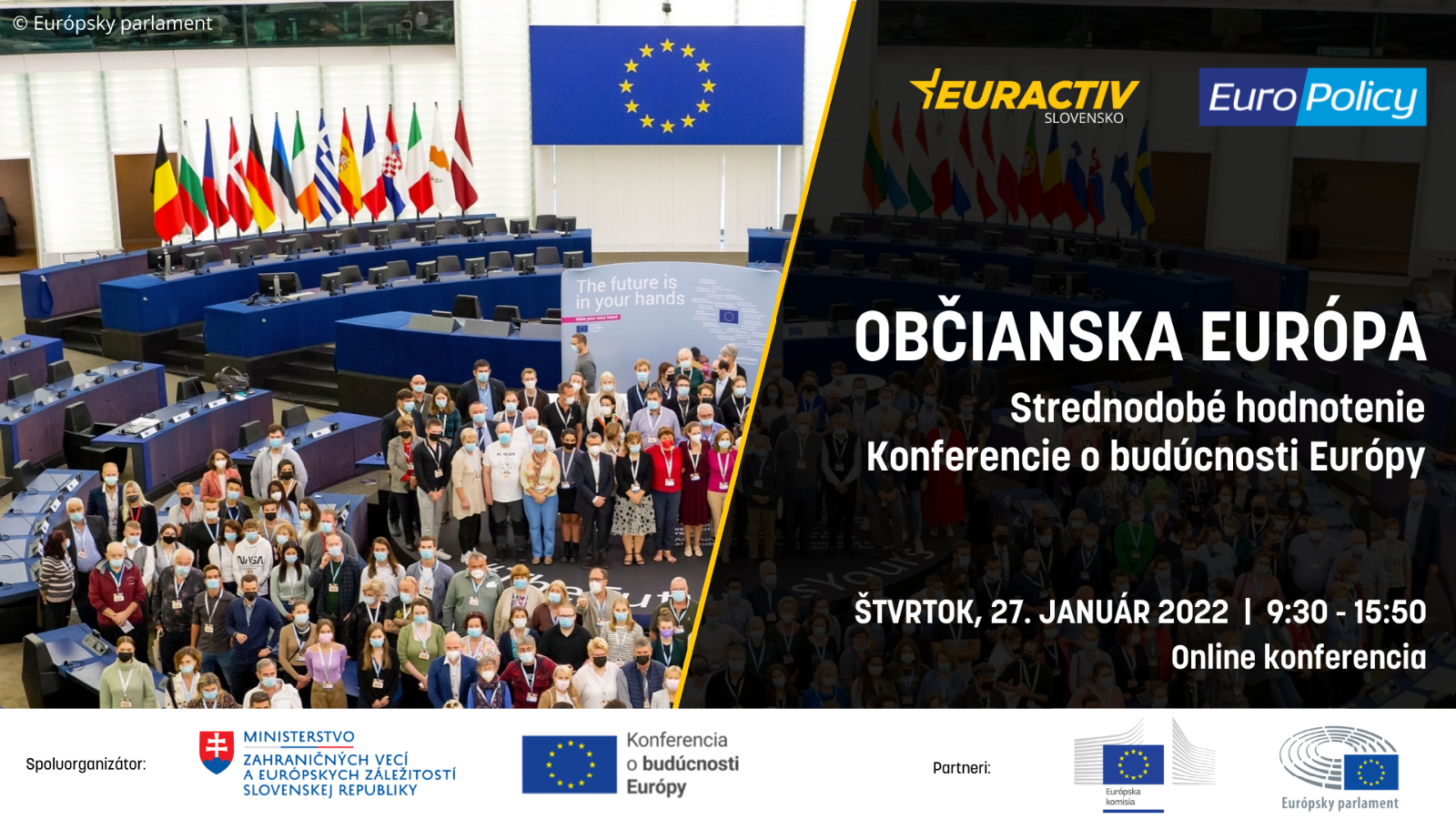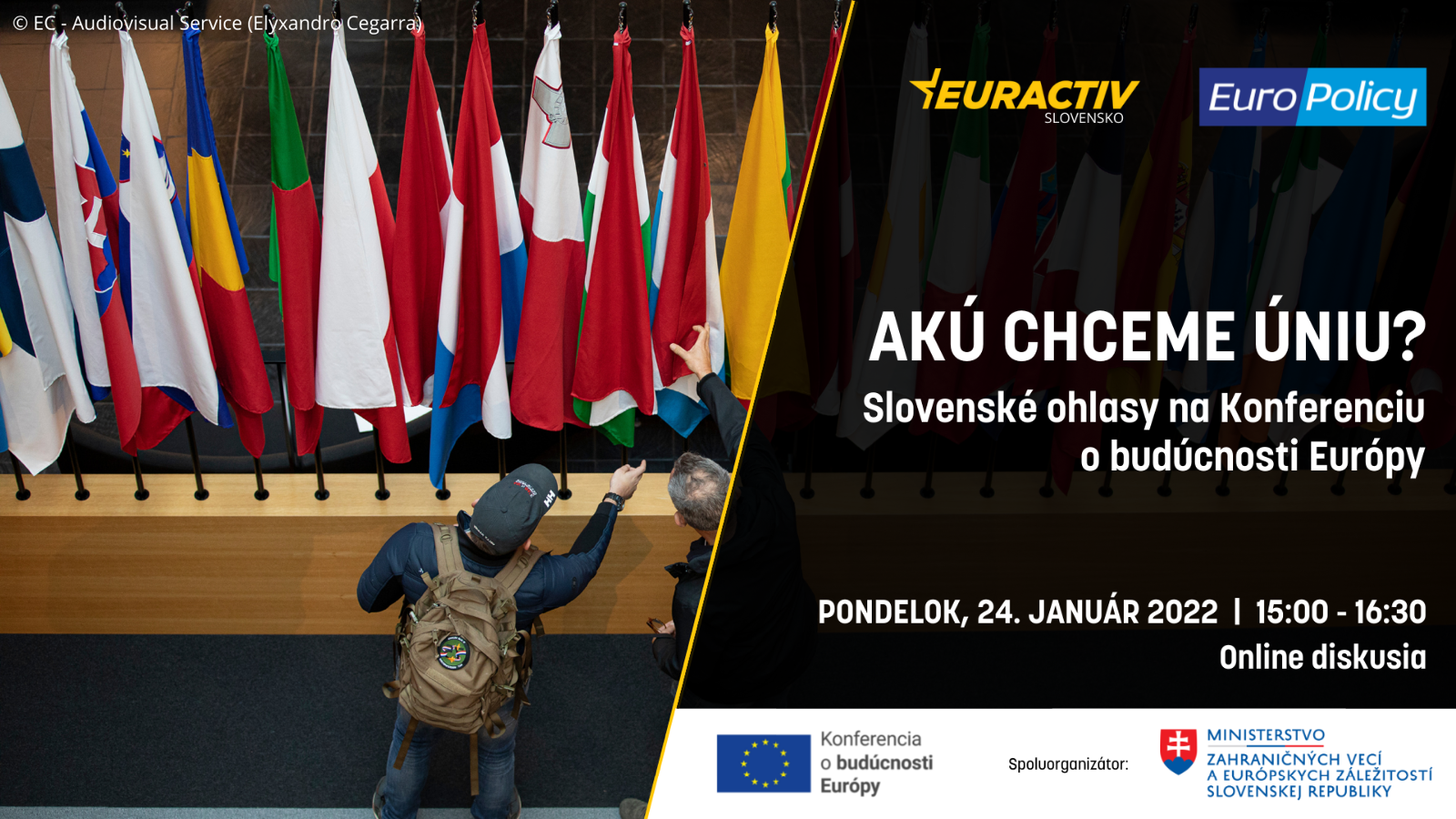- Category: Video
National Parliaments also have a voice in the decision-making processes of the European Union, as well as in the Conference on the Future of Europe itself. In a panel discussion, representatives of political parties in Slovakia focused on the challenges of citizen engagement and participation in public affairs at local, regional, national and European level. Do citizens understand the division of competences between EU institutions, national governments and local and regional authorities when they demand solutions to their problems? How do politicians in the Slovak Republic perceive the main challenges in the future of Europe and the European Union?
- Category: Video
The panel discussion assessed the process, format, outputs and visibility of the Conference on the Future of Europe in the eyes of the public at national and European level. The panellists will seek answers to whether the setting of the Conference on the Future of Europe is an effective tool for increasing citizens' participation in Europe-wide debates on the reform of the functioning of the European Union and on the need to increase its democratic legitimacy. It also assessed the recommendations of the European Citizens' Panel Discussion on European democracy and on values and rights, the rule of law and security. The aim of the discussion was to identify the main recommendations for the further representation of Slovak representatives at the Conference on the Future of Europe.
- Category: Video
The EuroPolicy Civic Association and the Ministry of Foreign and European Affairs of the Slovak Republic invite you to watch the online conference entitled Civic Europe - Mid-term Review of the Conference on the Future of Europe.
- Category: Video
The conference on the future of Europe is already in its second half. It is for Europeans to say what kind of European Union they want and to propose the changes they think are needed.






